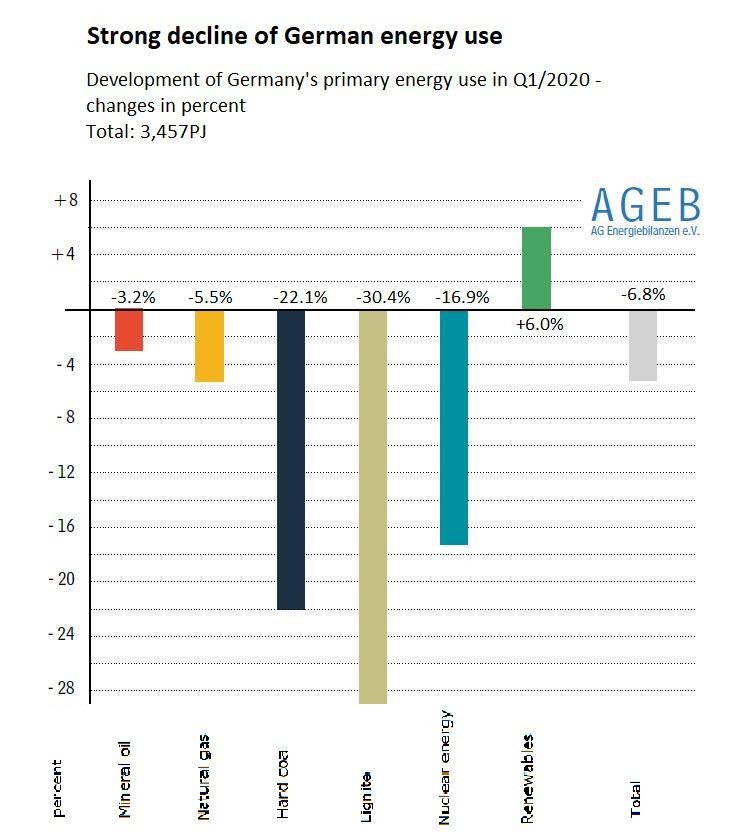Slowing economy causes sizable German energy use decrease in first quarter 2020
Lower demand, especially in energy-intensive industries, amid a slowing economy, warmer weather and the first effects of the coronavirus crisis have led to a 7 percent decrease in German energy use in the first quarter of 2020, said energy market research group AG Energiebilanzen (AGEB) in a press release. The coronavirus crisis effects are not yet strong in the first quarter, AGEB added. The group expects energy-related CO₂ emissions to have dropped by almost 11 percent compared to the first quarter 2019. Only renewables consumption rose (by 6 percent compared to the same period last year), while oil (-3.2 percent), natural gas (-5.5 percent) and nuclear power (-17 percent) consumption fell. Coal saw the biggest drop, mainly due to the electricity sector. Due to more renewables feed-in, planned shutdowns and decreasing demand due to the pandemic, coal-fired power production fell significantly. Overall, hard coal use dropped 22 percent, while lignite use plummeted 30 percent.
Latest data from statistics office Destatis showed that in the first three months of 2020, renewable energy sources accounted for the first time ever for more than half of the electricity fed into Germany's power grid. Wind power became the most important source with a share of around 35 percent of the electricity produced, Destatis data showed, confirming earlier estimates by utility association BDEW.
The economic crisis caused by the coronavirus pandemic will sharply slow economic activity and the associated greenhouse gas emissions in Germany. The wide range of current economic forecasts is making detailed predictions for CO₂ output difficult. However, economists say comparisons with the 2009 recession can provide some early indications of where emissions might be headed, and Germany may now well exceed the government's original 2020 target of a 40 percent emissions reduction compared to 1990.


